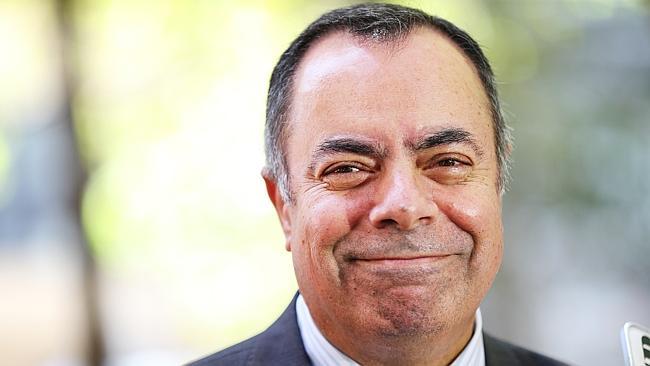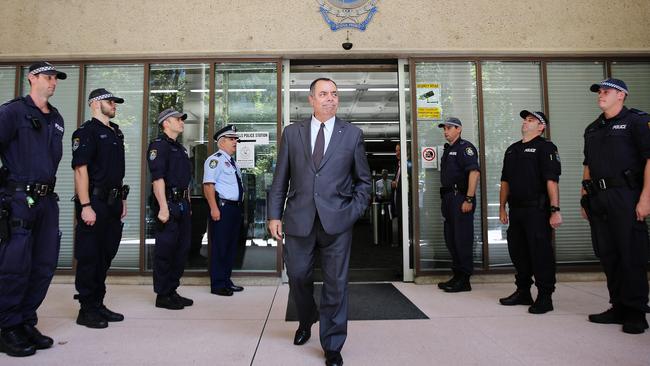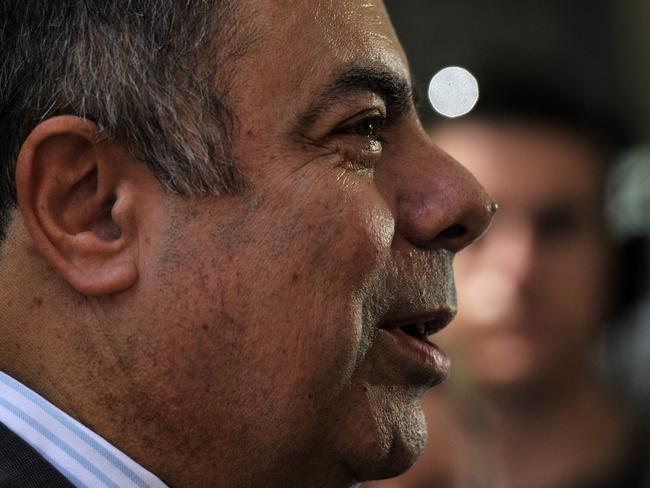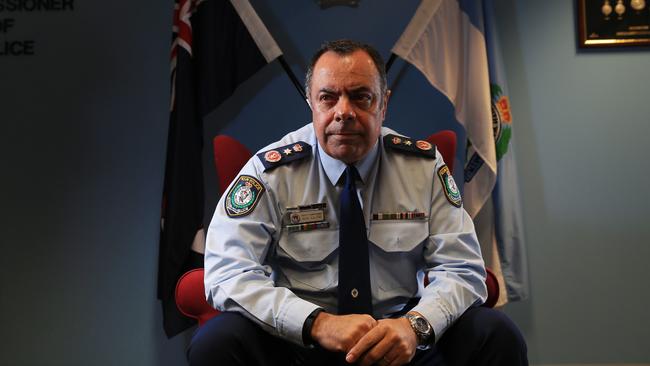Nick Kaldas: The reasons he would never become NSW’s top cop
HE was the cops’ cop — among rank and file officers. They trusted him, bowing to his impressive 34 years in blue that was littered with success and accolades. But he wasn’t to make the top.

News
Don't miss out on the headlines from News. Followed categories will be added to My News.
He was the cops’ cop — among rank and file officers, the popular choice to be the next man to wear the commissioner’s uniform. They trusted him. They respected him; bowing to his impressive 34 years in blue that was littered with success and accolades.
But Nick Kaldas won’t be top cop, the position that seemed his destiny, with the man who worked on some of the toughest cases in the state, resigning yesterday, claiming he had been made a “scapegoat” in a bitter falling-out with rivals for the soon-to-empty NSW Police Commissioner’s chair. And so the jockeying within the police hierarchy continues in earnest.
The first officer with a non-English speaking background to reach the lofty rank of deputy commissioner, Kaldas was well regarded as a hard-nosed investigator and a community peacemaker, two hats he wore with ease.

However, behind the scenes his path to the top job after three decades of service was strewn with obstacles.
He has a lengthy CV that includes running the homicide squad and helping rebuild the Iraqi police force. He had a stint leading the United Nations Special Tribunal for Lebanon while it investigated the assassination of Lebanese Prime Minister Rafiq al-Hariri in 2005.
But his stellar career was dogged by controversy. And his health suffered as allegations emerged he was being investigated by his own colleagues.
It began in the late 1990s when Peter Ryan was brought in from the Metropolitan Police in London in response to the Wood royal commission’s recommendations to clean up the NSW Police.
For two years until 2001 a secret internal police inquiry known as Operation Mascot/Florida was run by current NSW Deputy Commissioner Catherine Burn. It was part of the internal affairs unit headed by Andrew Scipione, the man who would go on to become Commissioner.

The Special Crime and Internal Affairs branch bugged and tapped the phones of 114 people. They employed the services of a corrupt and mentally unstable police officer known as M5 to record conversations he had with the targeted officers and journalists.
“I now know I was intensely targeted by that unit using the full resources of Special Crime and Internal Affairs and its partners the NSW Crime Commission and the Police Integrity Commission, using a corrupt rollover police officer codenamed M5 as their tool,” Kaldas said last year.
Strike Force Emblems was set up in 2003 to investigate the allegations of bugging and inappropriate use of warrants from Supreme Court Judges. However the findings were hushed up by successive state governments. In November, 2012, then NSW Ombudsman Bruce Barbour began an investigation, called Operation Prospect, into the bugging allegations. The results have still not been released.
An Upper House select committee was then set up to examine the conduct of the Ombudsman’s investigation.

A second one followed to investigate who was behind a leak that revealed the ombudsman was considering referring Kaldas to the DPP. Mr Kaldas told the committee his dealings with the Ombudsman had been a return to the bad old days: “I faced an onslaught, a concerted attack on my integrity and credibility. My emails, phone records, diary, notebooks etc. were invaded and quoted to me. I felt that the horrors of Mascot/Florida were happening to me again.”
The focus was on leaks about the bugging rather than the bugging itself.
“It felt like this was a well-planned attack to silence me as one of the main complainants,” he said.
The Upper House inquiry called on the state government to apologise to Kaldas and others who were “inappropriately named” on the surveillance warrants obtained internal affairs.
Mr Kaldas confirmed yesterday he thought he had been “scapegoated” in the affair: “That whole issue has gone on too long and I really think everyone involved in it wishes it should be over soon.”
Aside from the internal police controversies, Kaldas still harboured the belief that one day he would sit in the commissioner’s chair. But that ambition was scotched by a bottle of Grange Hermitage.
After a series of negative headlines about Sydney becoming a city of fear after a number of deadly shootings, former Premier Barry O’Farrell went directly to Kaldas, bypassing Commissioner Scipione, asking him to clean up the streets. O’Farrell was so impressed with how Kaldas had gone about his work and cut the gun crime rate, he promised the quietly-spoken policeman that he would name him commissioner once Scipione had left the position.
But O’Farrell’s wavering memories in front of the ICAC of how he came to obtain the expensive wine led to his downfall. And with him went Kaldas’ clear run to the top.
With Kaldas gone and the fate of Burn still to be decided once the Ombudsman’s report is released, the doors have opened for a number of ambitious senior officers to make a bid for the top job when Scipione goes in 2017.


